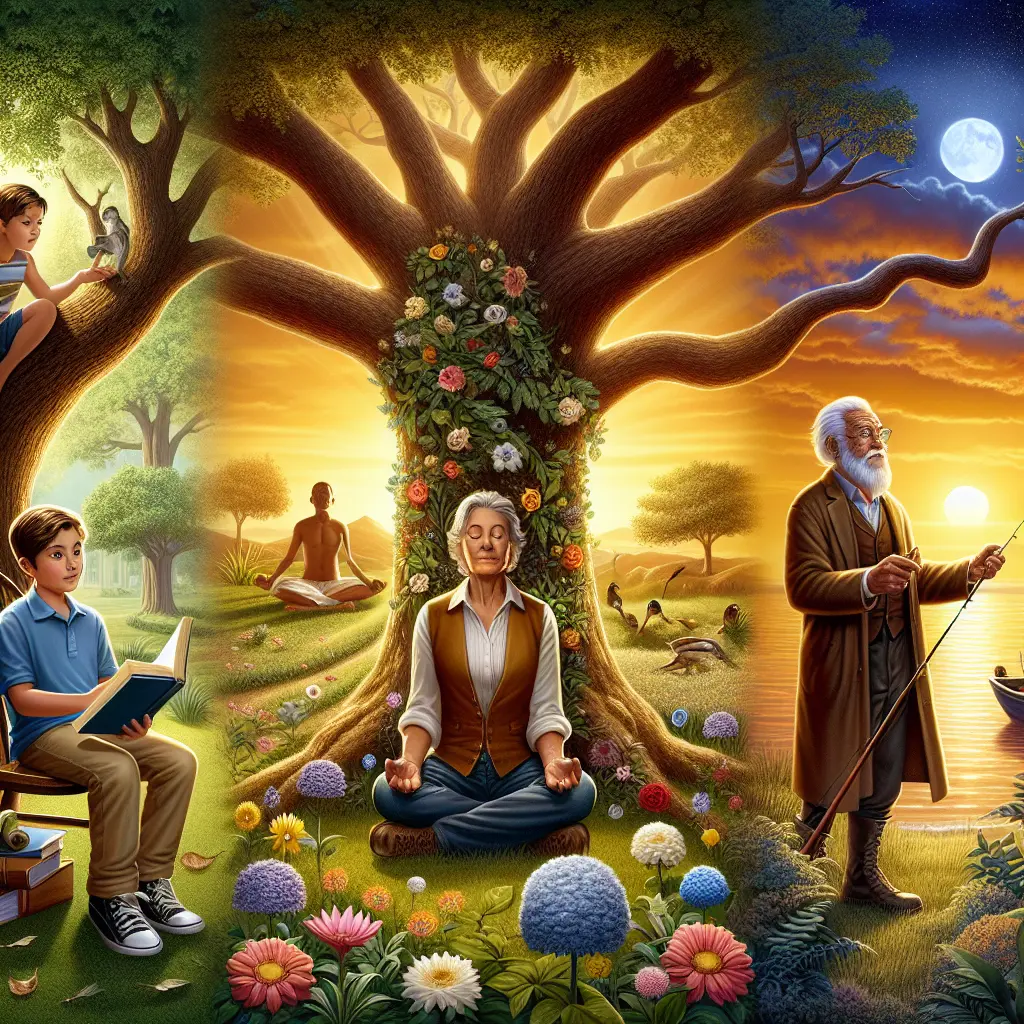
In the realm of classic literature, nature emerges not merely as a backdrop but as a dynamic force integral to character development. This profound theme resonates deeply with readers and scholars, offering a lens through which to explore the intricate relationship between environment and identity. As we delve into this literary analysis of nature, we uncover the multifaceted ways in which the natural world molds both narrative and character evolution in classic novels.
Nature's Influence on Characters: A Catalyst for Transformation
Nature in classic literature often symbolizes the internal struggles and transformations of characters. For instance, the tempestuous weather in Emily Brontë's "Wuthering Heights" mirrors the tumultuous emotions and conflicts of its characters. The windswept moors are not just a setting but a catalyst for change, reflecting Heathcliff's brooding intensity and Catherine's passionate turmoil. This interplay between literary settings and character development exemplifies how nature's impact on literary characters goes beyond mere symbolism, becoming an active participant in the narrative.
In recent discussions about the relevance of classic literature in modern education, concerns have arisen regarding the decline in students pursuing English literature at universities. Rachel Cooke explores this trend, questioning whether studies of great authors are doomed as interest wanes (source: The Guardian). This shift poses significant implications for the appreciation of themes like nature and character growth, as fewer students may engage with these timeless narratives. Yet, amidst these challenges, institutions continue to foster a profound understanding of classic literature themes.
Environment Shaping Characters: Insights from Contemporary Studies
A remarkable example of this ongoing commitment is found in a little-known, cash-strapped university outpost in Nebraska. Despite financial constraints, this institution has become a hub for renowned literary work and serious academic awe (source: The Chronicle of Higher Education). Such efforts underscore the enduring relevance of exploring how environments shape characters, ensuring that these discussions remain vibrant and accessible to future generations.
Nature motifs in classic books often highlight societal norms and human behavior. Consider Leo Tolstoy's Russia, where the expansive landscapes reflect both the grandeur and isolation experienced by characters like Anna Karenina. The natural world becomes a mirror to their internal dilemmas, illustrating how nature and human behavior in literature are intricately linked. This intricate connection enriches our understanding of character development in literature, offering insights into the complexities of human nature.
Nature Symbolism in Literature: Bridging Past and Present
The symbolic use of nature in storytelling enhances the depth and authenticity of narratives. In Herman Melville's "Moby-Dick," the vast ocean serves as both a physical and psychological expanse, embodying Captain Ahab's obsession and existential quest. This role of nature in storytelling invites readers to contemplate broader themes, encouraging introspection and engagement with the narrative's deeper meanings.
In contemporary times, the discourse surrounding literature is further complicated by cultural debates and educational policies. For instance, a recent editorial in The Salt Lake Tribune suggests that the proper response to book bans in schools is mockery. Such issues highlight the ongoing struggle to preserve intellectual freedom and access to diverse literary voices, reinforcing the importance of studying classic literature themes like nature's influence on characters.
Character Evolution in Classic Novels: A Timeless Exploration
As we navigate these complex discussions, it is crucial to recognize that the study of nature's role in narrative structure remains a timeless pursuit. The evolution of characters through their interactions with the natural world offers a rich tapestry for exploration, inviting readers to engage with both historical context and contemporary relevance.
The Lit Hub Weekly highlights ongoing conversations about literature's place in modern society. By examining how nature motifs in classic books continue to resonate with readers today, we gain fresh perspectives on enduring literary masterpieces. This exploration reveals the subtle yet powerful way nature symbolism in literature contributes to overarching themes and messages.
Conclusion: Embracing Nature's Impact on Literary Characters
In conclusion, the role of nature in shaping character development in classic literature is a profound theme that transcends time. Through its intricate symbolism and dynamic presence, nature molds both narrative and identity, offering readers an enduring source of insight and reflection. As we continue to engage with these narratives, it is essential to nurture an appreciation for how environments shape characters, ensuring that the legacy of classic literature themes endures for generations to come.
By integrating recent news and updates into our exploration, we bridge the past with the present, reaffirming the relevance of studying nature's impact on literary characters. Through thoughtful analysis and engagement with these timeless works, we enrich our understanding of character evolution in classic novels, inviting readers to embark on their own journeys of discovery within these rich literary landscapes.
To enrich your understanding of classic literature, consider diving deeper into how these themes resonate with modern society. Explore ongoing conversations on platforms like The Guardian and The Chronicle of Higher Education for insights into current trends and educational initiatives.
As you reflect on these narratives, I invite you to share your thoughts on how nature has influenced your perception of characters in literature. Your insights can spark a broader dialogue about the enduring impact of these classic themes. Together, let's continue this journey of discovery within the rich landscapes of literature.
Warm regards,
Rebecca Field